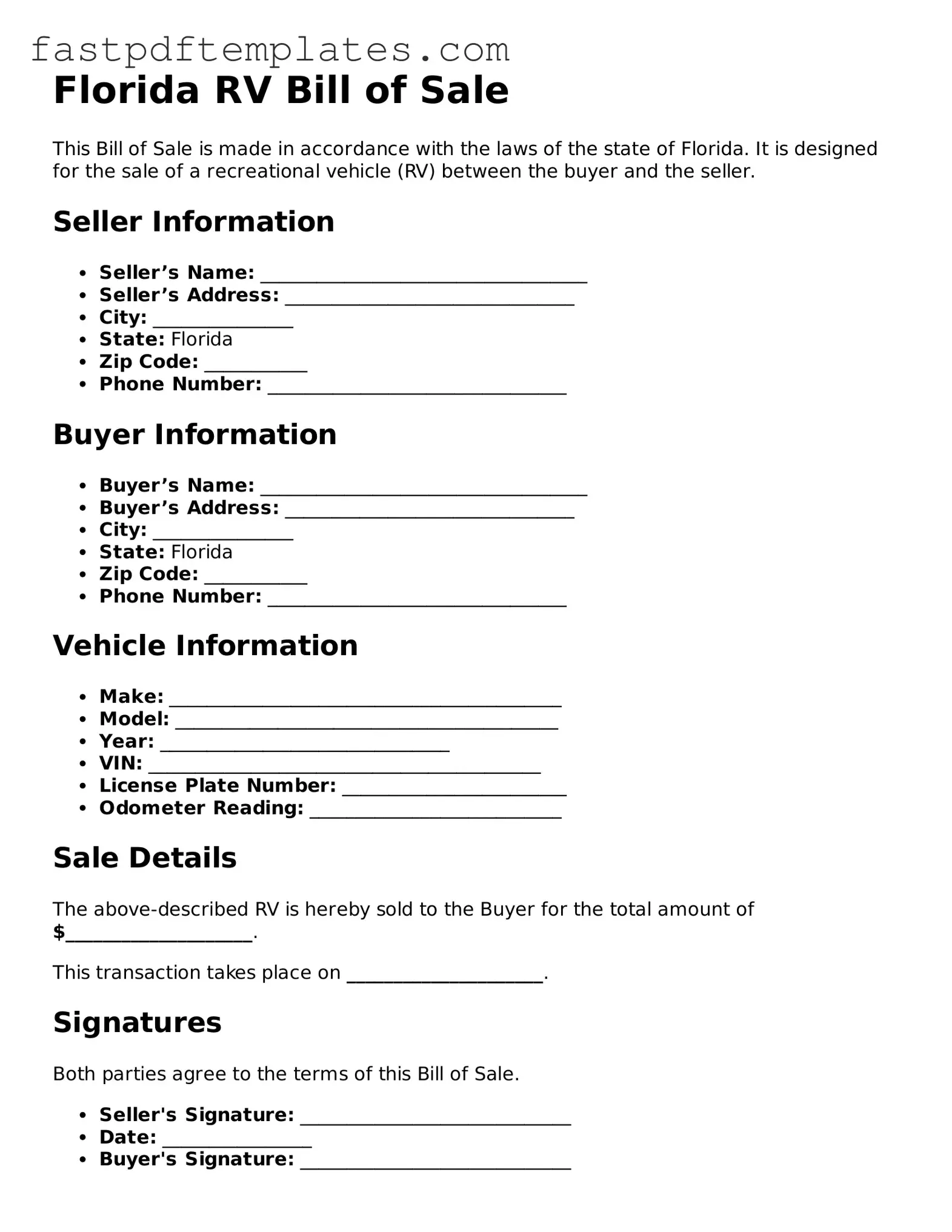The Florida Boat Bill of Sale serves a similar purpose to the RV Bill of Sale. Both documents are used to transfer ownership of a vehicle, whether it be a recreational vehicle or a boat. Each form includes essential information such as the buyer's and seller's details, the description of the vehicle, and the sale price. This ensures that both parties have a clear understanding of the transaction and provides legal protection in case of disputes.
The Florida Motorcycle Bill of Sale is another document that shares similarities with the RV Bill of Sale. Like the RV Bill of Sale, it outlines the transfer of ownership from one party to another. It captures vital details such as the motorcycle's make, model, and Vehicle Identification Number (VIN). Both documents aim to protect the interests of both the buyer and the seller, ensuring a smooth transfer of ownership.
The Florida Car Bill of Sale is closely related to the RV Bill of Sale in terms of its function. Both forms serve as proof of ownership transfer for motor vehicles. They require information about the vehicle, including its make, model, and year, along with the sale price. This documentation helps to establish a clear record of the transaction, which can be useful for future reference or in case of legal issues.
The Florida Mobile Home Bill of Sale shares a similar function with the RV Bill of Sale, as both involve the transfer of ownership for movable property. This document includes details about the mobile home, including its make, model, and identification number. By documenting the sale, both parties protect their rights and establish a legal record of the transaction.
The Florida Off-Road Vehicle Bill of Sale is another document akin to the RV Bill of Sale. This form is specifically for the sale of off-road vehicles, such as ATVs or dirt bikes. Like the RV Bill of Sale, it captures crucial information about the vehicle, including its description and sale price. This ensures that both the buyer and seller are on the same page regarding the terms of the sale.
Lastly, the Florida Aircraft Bill of Sale is similar in that it also facilitates the transfer of ownership, albeit for aircraft instead of ground vehicles. This document requires detailed information about the aircraft, including its make, model, and registration number. Both the Aircraft Bill of Sale and the RV Bill of Sale serve as legal proof of ownership transfer, providing security for both parties involved in the transaction.

